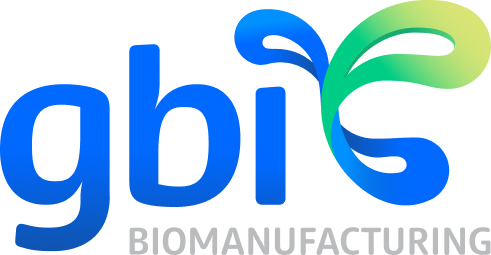Introduction
Bispecific, tri-specific or otherwise known as multi-specific monoclonal antibodies (mAbs) have become the next revolution treating complex diseases proving incredible promise for treating patients with severe illness. Different from standard mAbs that target a single antigen, multi-specific antibodies are designed to simultaneously bind two (or more) different antigens or epitopes. The multiple-targeting capability amplifies their therapeutic potential, particularly in complex diseases such as cancer, autoimmune disorders and infectious diseases. The development and manufacturing of these highly engineered molecules involves detail-oriented approaches in genetic engineering, rigorous analytical testing, robust and repeatable manufacturing protocols. GBI Bio (GBI) applies its decades of experience to ensure the development of manufacturing protocols for bispecific and multi-specific antibodies meet all technical and regulatory requirements.
Development of Multi-specific Monoclonal Antibodies
Identifying the Intended Targets
The development starts by identifying the intended targets. Two (or more) antigens or epitopes that play crucial roles in the disease process are identified. By way of example, in oncology the antibody could target both a tumor-associated antigen and an immune cell receptor. Further – a third epitope could also be added for tri-specific molecules. This multi-targeting strategy has the great potential to enhance therapeutic efficacy by simultaneously attacking the tumor and modulating the immune response.
Learn more about “Tech Transfer: Focus on the Details” HERE!
Understanding the Design of Bispecific and Multi-specific Antibodies
The next step is design of the bispecific and multi-specific antibodies; that is, use of recombinant DNA technology to fuse two (or more) different mAbs or antibody fragments into a single molecule. Various formats for the construction of bispecific and multi-specific antibodies are employed by companies and institutions, for example tandem scFvs (single-chain variable fragments), diabodies, added peptide binding domains, and dual-variable domain antibodies. Each engineered approach has its own advantages and challenges, influencing factors such as stability, binding affinity, and manufacturability.
Manufacturing Process
Step-By-Step Engineering Strategy for Multi-Specific Antibodies
The manufacturing of multi-specific antibodies requires well thought through engineering strategies to ensure formation of a complete molecule as intended with minimal mis-paired or antibody fragments. To do this the following steps are typical:
- Genetic Engineering and Cloning: The genes encoding the multiple antibody fragments are cloned into expression vectors and stably inserted into CHO host cells (most common).
- Cell Culture and Expression: The engineered CHO cells are cultured in bioreactors under controlled conditions to express the product. This activity requires optimizing critical parameters such as temperature, pH, media selection, supplement usage, and time to maximize antibody production while minimizing unintended fragments or mismatches and maintaining the stability of the molecule. The design of these processes is where GBI excels applying a feedback loop of analytics to ensure the production of a high-quality product.
- Purification: The multi-specific antibodies are purified from the cell culture supernatant using a series of well-adapted filtration and chromatography steps. This process removes impurities and maintains the antibody’s purity and potency. Among these steps – Protein A capture chromatography, ion-exchange chromatography and viral filtration are typical. In some situations, a highly complex engineered antibody might be susceptible to low pH as a hold step for viral inactivation and alternative approaches must be designed, such as solvent detergent treatment. GBI looks closely at the susceptibility of the molecule when designing downstream purification approaches.
- QC and Characterization: The purified multi-specific antibodies undergo rigorous characterization to confirm their structure, binding properties, and potency in a bioassay. Techniques such as mass spectrometry, surface plasmon resonance, and bioassays are employed to assess the antibody’s quality and performance. A critical need are stability studies to ensure the multi-specific antibodies remain active and complete while stored as bulk and vialed drug product on the shelf waiting to be administered to the patient.
- Formulation and Fill-Finish: The multi-specific antibodies are formulated into a suitable dosage form, typically as a frozen liquid or for some labile molecules, as a lyophilized powder. The product is filled into vials or syringes – again the drug product is carefully analyzed to develop appropriate storage conditions to maintain stability. GBI excels in the development of stability indicating protocols.
On the Horizon
Challenges with Bispecific and Multi-Specific Antibodies
The development and manufacturing of bispecific and multi-specific antibodies present multiple challenges. First and foremost is the assembly of the correct confirmation and the stability of the molecule. Risks include improper folding or aggregation which compromises efficacy, safety, and production yield. Additionally, the multi-targeting nature of these highly engineered mAbs can generate unintended immunogenicity risks in the patient.
Future for Multi-Specific Antibodies
As complex as the development and production of these bispecific and multi-specific antibodies is, the promise and potential efficacy of these drugs is compelling. Therefore, it is important that advances in genetic engineering, cell line development, manufacturing strategies and technologies are made.

Learn more about “Choosing the Right Monoclonal Antibodies Manufacturer: A Comprehensive Guide” HERE!
Conclusion
Bispecific and multi-specific antibodies need a deeper focus from engineering through clone selection, understanding of analytics in a feedback loop to maintain the quality of the molecule from process development through scale-up and GMP manufacturing. Attention to detail for these highly engineered proteins is critical to maintain quality, stability, and adhere to timelines. GBI applies decades of expertise to define these parameters and generate processes attuned to multi-specifics antibodies and we are proud to participate in getting these life-saving therapies into the clinic and beyond.
Contact GBI Biomanufacturing Today about Your Clinical & Commercial Manufacturing Needs!

